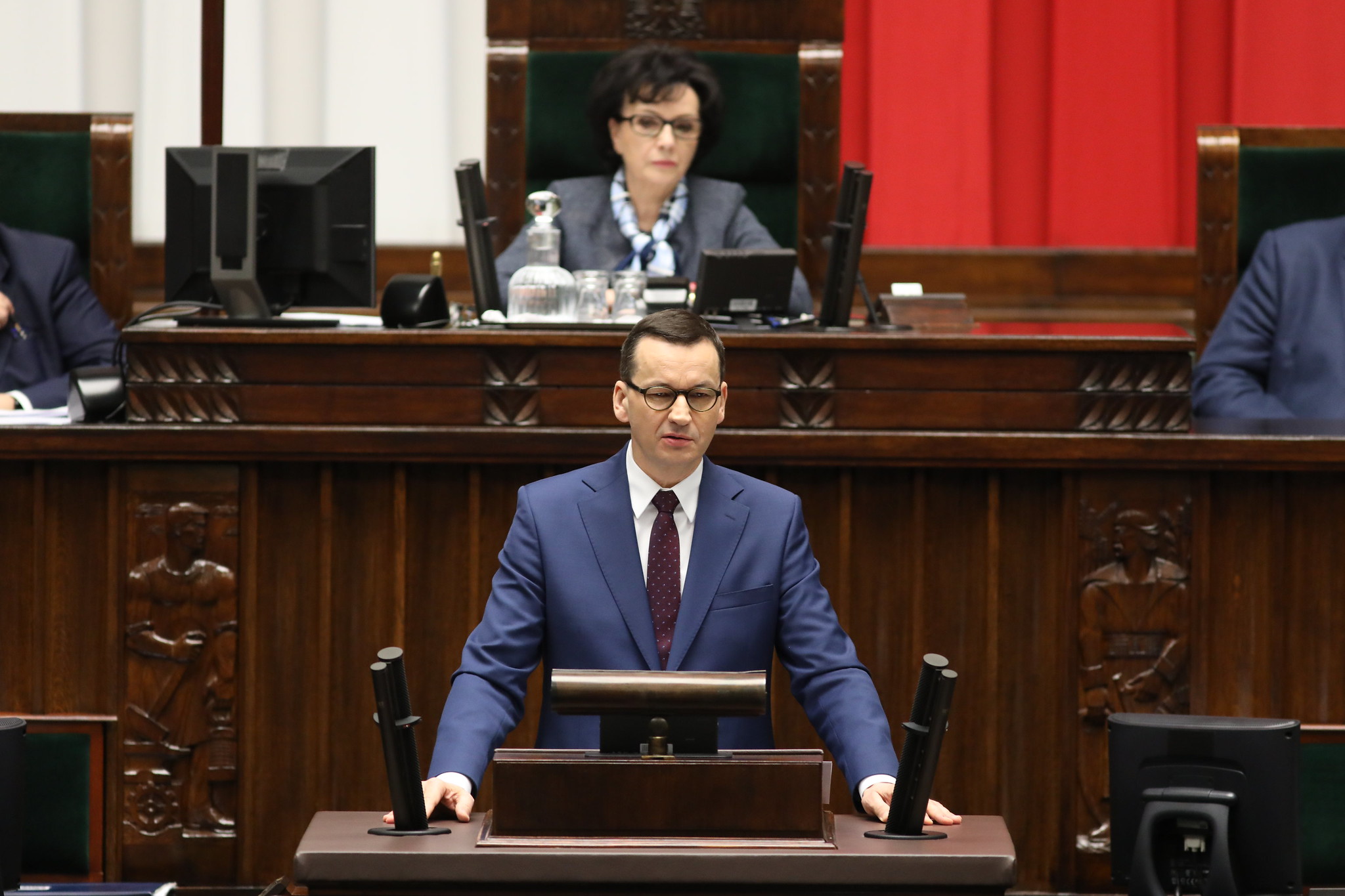2020-03-30
FOR Communication 11/2020: State Support for Companies - Complicated, Discretionary and Delayed
 Summary:
Summary:
- At present, the most important challenge is to maintain jobs and support people who cannot work in Poland due to the coronavirus and actions aimed at reducing the scale of the epidemic. On the one hand, this requires the support of companies that pay their employees but, deprived of income, are themselves at risk of bankruptcy. On the other hand, it requires support for people who have worked in unusual forms of employment and have lost their jobs overnight.
- In the draft of the "anti-crisis shield" the government takes both challenges into account, allocating about PLN 25 billion in respect to them. It should be noted that the amount of PLN 212 billion reported by the government is misleading because it adds up very different instruments (e.g. tax shift by 2 months, non-refundable subsidies and bank loans). The actual public expenditure provided for in the "shield" act is to amount to about PLN 70 billion, of which about PLN 30-40 billion is provided for this year.
- The key is not the amount of expenditure, but its effectiveness. Auctioning the increase in the scale of support will mean a sharp increase in public debt and public finance problems. That is why it is so important to comply with fiscal rules, which in times of crisis give rulers more room for manoeuvre and at the same time increase the credibility of the state. With the limited resources available, their good use will be crucial.
- The tools proposed by the government to support those working are unnecessarily complicated, but at the same time they do not target the aid only to those most affected by the epidemic. The complicated requirements are particularly problematic due to the vagueness of the already existing tax and contribution regulations or the Labour Code. In addition, the current situation requires a reduction in people-to-people contacts, which hampers citizen-administration relations. The most important instruments proposed by the government are:
- Standstill benefit for persons working under civil law contracts and the self-employed (one-time benefit of PLN 2080, may be granted twice); the most important condition is a 15% decrease in income in the previous month. Due to delays in payments and deliberate moving of bills, some of those in need may receive not receive support until May, while those who are able to shift part of their income will be able to use it more quickly.
- 3 months exemption from the Social Security contributions for the self-employed with income below three times the average salary. Since revenue was chosen as the criterion, e.g. an IT specialist with the income of PLN 14 thousand per month, which at the same time is his or her income will benefit from the exemption, a shopkeeper with a revenue of PLN 20 thousand per month, of which only a fraction is income, will not be qualified.
- Exemption from the Social Security contributions for employees of companies employing up to 9 people. The criterion of company size means that companies employing 8 people will benefit from it, even if they can now work normally, while a restaurant employing 10 people will not qualify for support because of a pandemic. The biggest paradox is that the Ministry of Development, which is responsible for these solutions, directly punishes companies that have increased their employment in recent months.
- Compensation for posts. Companies, regardless of the size of their employment, will be able to take advantage of the additional payment for posts. The first unnecessary complication is splitting it into two different programs, one financed from the Labour Fund, the other from the Guaranteed Employee Benefits Fund. The second problem is the criterion of a decrease in income. For companies that issue an invoice after the completion of work or at the end of the month it will be a trap - to issue the invoice for March and count on the client to pay or not to issue it in order to meet the criteria of government programs?
- Standstill benefit for persons working under civil law contracts and the self-employed (one-time benefit of PLN 2080, may be granted twice); the most important condition is a 15% decrease in income in the previous month. Due to delays in payments and deliberate moving of bills, some of those in need may receive not receive support until May, while those who are able to shift part of their income will be able to use it more quickly.
In all programs, apart from dismissal of micro-entrepreneurs from the Social Security contributions, the problem will be the time needed for the administration to verify applications, which will delay aid for companies and the self-employed.
- FOR proposed a more effective solution - providing support now by shifting the Social Security contributions for the self-employed and companies and carrying out verifications at a later stage. For those most affected by the pandemic and the restrictions needed to combat it, the aid would be non-refundable, the others would be obliged to repay it.
- The package of changes in economic law is much broader and contains many more detailed regulations, some of which are right, but there are also very questionable proposals. Positive tax changes include postponing many payment deadlines and postponing the entry into force of the retail sales tax, while the idea of introducing a sugar tax in 3 months' time is a mistake. The desired regulatory changes include the extension of work permits for foreigners, facilitation of remote work or extension of care benefits. The introduction of the possibility to control prices and margins, the pursuit of limiting access to credit for people on low incomes and the interference in private leases are simply harmful. The abolition of the trade ban is also lacking.
Authors:
Aleksander Łaszek,PhD, Chief Economist
[email protected]
Rafał Trzeciakowski, economist
[email protected]
Marcin Zieliński, economist
[email protected]

